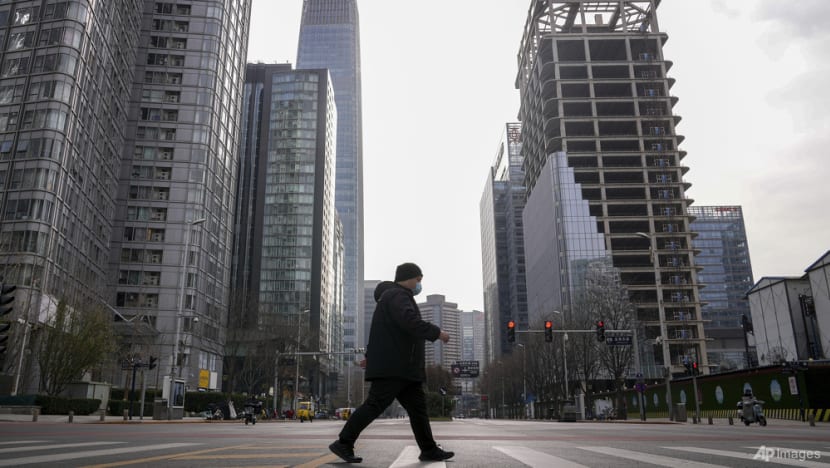Businesses prepare to invest in China again following relaxation of strict COVID-19 curbs
China’s abrupt relaxation of restrictions has led to the coronavirus sweeping across the country, with some estimates suggesting millions being infected daily.

BEIJING: Foreign businesses are gearing up for travel into China, following the country’s sooner-than-expected relaxation of its strict COVID-19 travel curbs and border controls.
But while the move could help boost foreign investment, China’s post-COVID-19 economic recovery could still take some time, said business groups and analysts.
This comes as China continues to grapple with rising infections.
Its abrupt relaxation of restrictions has led to the coronavirus sweeping across the country, with some estimates suggesting millions being infected daily.
BOOST FOR TRAVEL, MIGRATION BUSINESSES
Despite the uncertainty, one migration agency in Beijing is expecting a 30 to 50 per cent boost in business this year, as its clients are able to visit destination countries more easily.
The Singapore-headquartered AIMS Group of Companies has been ramping up preparations, after China announced it would scrap lengthy quarantines for inbound travellers and relax other travel restrictions from Jan 8.
Business had taken a hit in the initial stages of the pandemic, forcing the company to shut three of its five offices in China and lay off employees.
It also had to stop in person seminars, which it used to hold fortnightly in various Chinese cities prior to the pandemic.
Mr Pearce Cheng, chief executive of the AIMS Group of Companies, said: “I think the business model will have to change. So I don't know whether having like a large group of people in a single room will still work in China. Of course, we have to test it out."
The company’s leaders are also looking to resume regular business trips to China after Chinese New Year.
Mr Cheng, who is hoping to personally assess how China has changed in the last three years, said: “I am definitely going to fly in because I know that the face-to-face value is really very important and I know some of the clients, they really want to hear from myself or some of my colleagues here in Singapore.”
Other foreign business groups said China’s highly-anticipated reopening will boost business confidence and help in getting more investments.
“If you can't have senior management come, it makes it very hard to get the attention for additional investment,” said Mr Michael Hart, president of the American Chamber of Commerce in China.
“There's a lot of concerns about supply chains, and there's a lot of concerns about United States-China relations. When you can have people come and have face-to-face meetings, people-to-people exchanges, that will really help.”
The Singapore Chamber of Commerce in China told CNA the zero-COVID policy changes signal the central government's intent to focus on economic development, adding that it has improved confidence among businesses that normalcy could return "very soon".
But some firms are waiting to see how the domestic situation pans out.
"With China currently undergoing a paradigm shift in its approach to the COVID-19 pandemic, businesses will likely continue to wait to see how the situation on the ground evolves over the coming weeks, before making any long-term decisions on their China investments," said the European Union Chamber of Commerce in China in a written statement to CNA.
IMPACT OF RELAXATION OF COVID-19 CURBS
It could take some time for China’s economy to recover, as it manages the impact of its sooner-than-expected relaxation of zero-COVID measures.
Some analysts said the current COVID-19 wave is far from over, as the virus continues to sweep through the country and is expected to reach smaller cities and rural areas, especially as people travel home for the Spring Festival later this month.
A quick recovery can be expected once the situation comes under control, said experts, with many adjusting economic growth forecasts for this year upwards to above 5 per cent. But more policy support is still needed, they added.
Hang Seng Bank China chief economist Dan Wang said: “It just looks like the timeline is quite unclear. Before the Two Sessions in March, we don't anticipate any major policies coming out because that's when the new leaders will be in place and then they will be in the right position to issue new strategies for China's development.”
China's Two Sessions are the meetings of the top decision-making bodies, the National People's Congress and the Chinese People's Political Consultative Conference.
The annual affair this year is set to be closely watched as a leadership reshuffle of government positions is finalised.
"Now, it seems that the monetary policy and fiscal policy have both been quite conservative, and the lack of liquidity in construction and real estate is still quite widespread,” added Ms Wang.
However, she said there could be other challenges as the global economic outlook remains gloomy for 2023, especially with the war in Ukraine continuing with no end in sight.
“Even the US economy, which is a major destination for China's exports, is slowing down in a significant way,” she said.
“So that means when China is in full recovery, probably later this year, there wouldn't be enough demand from the overseas market.”

















